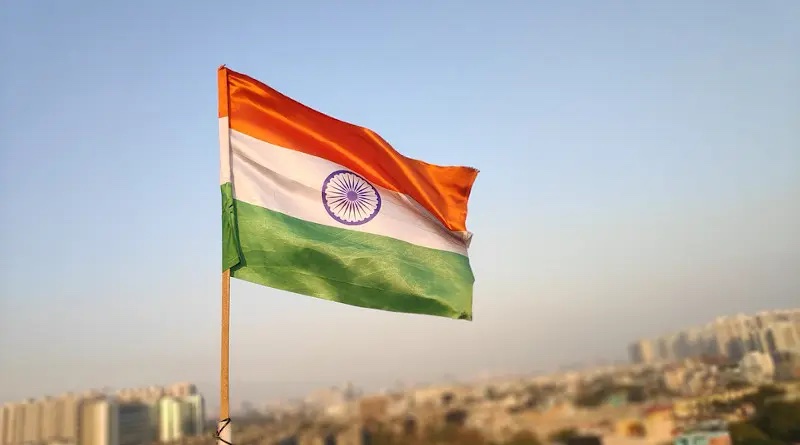India’s Space Success A Beacon Of Hope And Inspiration – OpEd
By Arab News
By Khaled Abou Zahr
In an extraordinary achievement that echoed worldwide, India on Wednesday proudly announced the landing of the Chandrayaan-3 spacecraft on the moon’s uncharted south pole. This historic milestone solidifies India’s position as an emerging space power. A few days prior, Russia’s attempt at a lunar landing was a failure. These events highlight the fierce global competition for lunar expansion, while underscoring its profound geopolitical implications.
The Chandrayaan-3 spacecraft’s touchdown on the moon places India’s name in an exclusive club of nations. It affirms India’s status as the fourth nation — after the US, Russia and China — to master the art of the lunar landing. The presence of Indian Prime Minister Narendra Modi during the live broadcast gave a geopolitical dimension to the event, highlighting its significance beyond scientific accomplishment. It was a clear message that India is now emerging as a global political heavyweight in space, but also on Earth.
It contrasts with the hasty attempt by Russia’s Luna-25 spacecraft. This was poised to lead Russia’s lunar resurgence, but it met an untimely demise as it lost control and collided with the moon’s surface. This incident serves as a harsh reminder of the unforgiving nature of space exploration, where technical glitches and unforeseen challenges can lead to disheartening setbacks. Yet, one can read more into it, especially with Moscow’s entanglement in Ukraine. Probably another hasty decision that backfired.
The moon’s south pole — just like ours on Earth — has evolved into an area where global powers are engaged in a fascinating tango of cooperation and rivalry. The convergence of scientific curiosity and strategic calculations has ignited a contest for access to this enigmatic area. Recent discoveries of ice nestled within the region’s craters have heightened the allure of the south pole, as water holds the potential to fuel future space missions and potentially sustain life. Much like the competition among terrestrial nations for finite resources to enhance their geopolitical influence, nations are positioning themselves to harness the potential resources of the moon. The resolve of these countries and the magnitude of the competition mirror the pursuit of resources that have, in a way, shaped Earth’s geopolitical landscape.
Moreover, settlements on the moon are key to the future exploration of our universe. And this is a goal that should unite us all. With a much lower gravitational force, rockets can be sent into space from the Moon with lower fuel costs than on Earth. This reduction also allows for greater range — a necessity for interplanetary expeditions.
According to NASA, there is a lot of “mystery, science and intrigue” around the south pole of the moon. It makes sense, then, that there is a purported space race to reach the area, which is far removed from the Apollo landing sites that are grouped together around the equator. The Lunar Reconnaissance Orbiter, a NASA spacecraft that has been orbiting the moon for 14 years, has obtained data that suggests ice may exist in some of the huge, permanently shadowed craters, and that it may be able to support humanity.
The need for collaboration is highlighted by the Artemis program, which is an ambitious initiative by NASA that is aimed at returning humans to the moon by 2024, followed by the establishment of a sustainable lunar presence. Artemis envisions international collaboration, uniting nations in a collective endeavor to explore and exploit lunar resources. Yet, beneath the veil of cooperation lies an undercurrent of rivalry, as nations strive to secure their roles and potential resources in this race.
China, a formidable player in lunar exploration, is also eyeing the moon’s southern extremity. The Chang’e missions have showcased China’s impressive capabilities in lunar exploration, while the nation’s aspiration to establish a moon base underscores its strategic intent. Similarly, the European Space Agency’s engagement in lunar exploration initiatives adds another layer to the international race. It is captivating to see how science, politics and economic interests merge in this endeavor. Soon, space will be part of every country’s national security.
The worldwide positive reaction to India’s achievement shows a thirst for another way in Earth’s geopolitics. It was interpreted by many as a beacon of hope and inspiration. It highlighted the country’s shift from a history of colonialism and adversity to a nation accessing space, while symbolizing its resilience and a will to succeed, which can serve as an example.
Clearly, the competition for lunar and space dominance is as much about scientific discovery as it is about geopolitical influence. And one may even say that the risks of conflict are actually higher than people imagine. Indeed, there are no frontiers between nations on the moon. This is why, in order to avoid confrontations that could start from space and spread to Earth, there should be a clear commitment from nations that they collaborate and establish a competition rulebook. But competition and freedom of enterprise should be guaranteed and ingenuity and speed rewarded, not controlled by a single body.
This time, unlike 50 years ago, when Russia achieved the first soft landing on the moon, the competition is not only between superpowers, but also includes private companies. The commercialization of space is now a key segment of economic growth. With every new achievement, humanity will uncover the mysteries of our universe. Yet, beneath the scientific goals, one must be aware of the geopolitics and the alliances that influence this global race from the Earth to the moon.
- Khaled Abou Zahr is the founder of Barbicane, a space-focused investment syndication platform. He is CEO of EurabiaMedia and editor of Al-Watan Al-Arabi.

